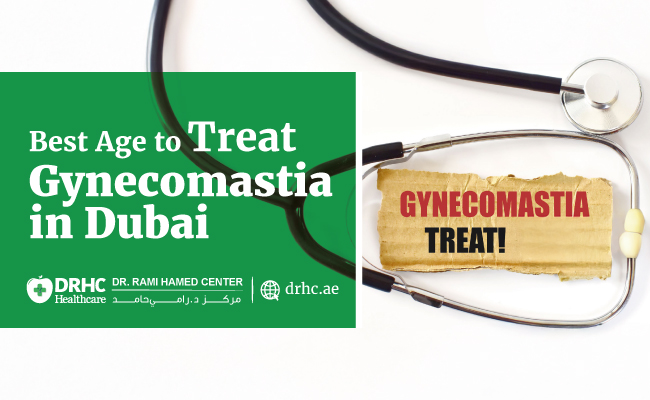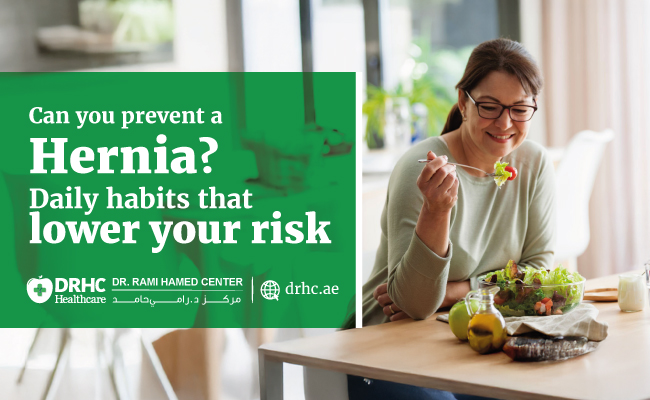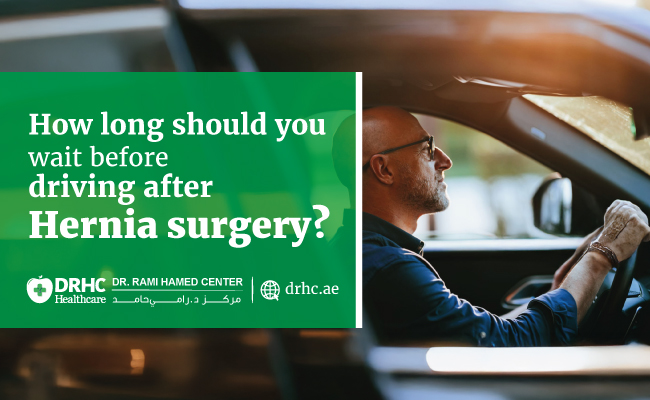
If you’ve recently undergone gallbladder removal surgery—or are preparing for one—it’s completely normal to have questions about what comes next. How will digestion change? What foods can you eat? Are there long-term effects?
At the Dr. Rami Hamed Center (DRHC) in Dubai, we believe that recovery doesn't end when you leave the operating room. True healing includes knowing how to care for your body and manage changes with confidence.
Here’s what you need to know about life after gallbladder surgery, including dietary adjustments, digestion, and long-term wellness.
What Does the Gallbladder Do—and What Happens Without It?
The gallbladder stores bile, a digestive fluid produced by the liver to help break down fats. After gallbladder removal (cholecystectomy), bile flows directly from the liver into the small intestine.
Most people live healthy, normal lives without a gallbladder. However, some notice mild changes in digestion, especially in the first few weeks after surgery. These changes are typically manageable and improve over time with proper care and guidance.
Common Concerns After Gallbladder Surgery
1. Will I have pain or discomfort after surgery?
It’s common to feel some soreness or bloating in the days following surgery, particularly with laparoscopic procedures. This usually resolves within a week or two. Any persistent or severe pain should be discussed with your doctor.
At DRHC Dubai, we provide detailed aftercare instructions and support to help you recover comfortably.
2. Can digestion change after gallbladder removal?
Yes—some patients may experience:
- Loose stools or diarrhea, especially after fatty meals
- Bloating or gas
- More frequent bowel movements
These are typically temporary and often improve with dietary adjustments. Long-term digestive issues are rare and can usually be managed effectively.
3. Will I need a special diet permanently?
You won’t need a strict diet forever, but certain changes can help your digestive system adapt—especially in the first few months post-surgery.
Your Post-Surgery Diet: What to Eat and What to Avoid
Here are some practical dietary tips to support healing and ease digestion:
Foods to Include:
- Low-fat proteins: Grilled chicken, turkey, fish, legumes
- Steamed or boiled vegetables: Carrots, spinach, zucchini
- Whole grains: Brown rice, oatmeal, whole wheat bread
- Fruits: Bananas, apples (peeled), berries
- Plenty of water to stay hydrated
Foods to Limit or Avoid:
- Fatty or fried foods: Can trigger diarrhea or bloating
- Spicy dishes: May irritate the digestive tract early on
- Creamy sauces and full-fat dairy
- Caffeine and carbonated beverages: May increase gas
It helps to eat smaller, more frequent meals and avoid large portions of fatty food.
Our nutrition specialists at DRHC Dubai can create a personalized meal plan to support your recovery and lifestyle.
Long-Term Effects: What to Expect Months and Years Later
Most patients fully adapt within a few months after gallbladder removal and experience no lasting health issues. Long-term side effects are rare but may include:
- Chronic diarrhea (in a small number of cases)
- Mild intolerance to fatty or greasy foods
- Bile reflux (less common)
If you do experience persistent symptoms, there are treatments and medications available to help regulate digestion. Regular checkups can also ensure your digestive system remains healthy over time.
Our Related Blogs:
- Can Bariatric Surgery Help Reverse Type 2 Diabetes?
- 10 Myths About Bariatric Surgery — Debunked by Experts
- Non-Surgical Options for Hernia: Do They Really Work?
- Top Reasons Hernias Recur After Surgery and How to Prevent It
- Hernia Repair Success Rates: What Affects Long-Term Outcomes?
- Is Mesh Always Needed in Hernia Repair? Pros, Cons, and Alternatives
- 10 General Surgery Myths Debunked by a Dubai Surgeon
- Gallbladder Removal in Dubai: Laparoscopic vs. Open Surgery – Which is Safer?
Tips for a Smooth Recovery and Healthy Digestion
- Introduce new foods gradually to monitor tolerance
- Avoid skipping meals, as this can worsen symptoms
- Stay active with light exercise to encourage healthy digestion
- Follow up with your doctor to monitor your progress
Remember, recovery is personal. Some people bounce back quickly, while others need more time and support. At DRHC Dubai, we walk beside you through every phase of healing.
When to Seek Medical Advice
Reach out to your healthcare provider if you experience:
- Severe or persistent abdominal pain
- Vomiting or nausea that won’t go away
- Yellowing of the skin or eyes (jaundice)
- Unexpected weight loss
- Ongoing diarrhea lasting more than a few weeks
If you’re in Dubai and looking for expert follow-up care after gallbladder surgery, consultations, and post-operative support are available at DRHC Dubai.
In Summary
- Life after gallbladder surgery is generally smooth, with most people resuming normal activities and diets.
- Some temporary changes in digestion are expected, but they often improve with time and dietary care.
- Adopting a low-fat, balanced diet and eating smaller meals can help ease the transition.
- The team at DRHC Dubai is here to support you with nutritional advice, follow-up care, and answers to any concerns that arise along the way.
If you're experiencing symptoms of gallbladder disease or have been advised to consider surgery, we’re here to help. Book a consultation at DRHC Dubai today to explore your options with confidence.
📞 Call Us: +97142798200
📍 Visit Us: Dr Rami Hamed Center, Dubai HealthcareCity
🌐 Website: www.drhc.ae
Topic: General Surgery




.webp)




Leave a comment